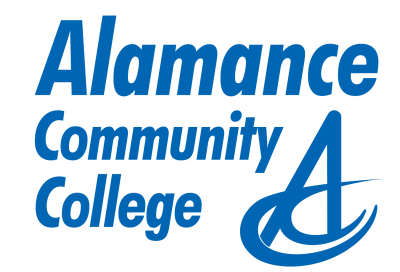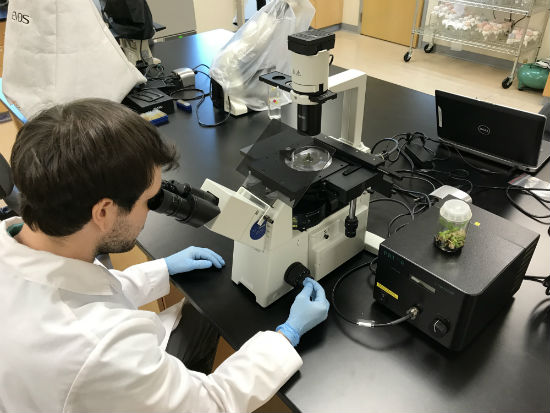
ACC Offers New Degree Program in Agricultural Biotechnology

The growing number of agricultural biotechnology companies and jobs in North Carolina has motivated Alamance Community College in Graham to offer the state’s first and only associate’s degree program in the field.
Seven students are the first to study in the new agricultural biotechnology program, and ACC expects enrollment to reach 25 to 30 students over the next two years, said Elizabeth Riley, Ph.D., department head of horticulture technology and agricultural biotechnology.
“This degree program was created to meet the need that companies have for employees trained in lab research techniques and also plant production,” Riley said. “Alamance Community College is positioned in the middle of the Research Triad and Research Triangle Park. There has always been a strong research presence centered around agricultural biotechnology, and that presence is continuing to grow.”
Students will take courses including basic lab techniques, applied plant science, plant propagation, micropropagation, bioethics, cell culture, and chemistry. They will also be required to take internships.
“We work with industry members to see who is willing to partner with us to host interns, and we also see what the interests are for the students before we place them,” Riley said. “If there are companies interested in partnering with us for internships, guest lectures, field trips, etc., we would love to get that conversation started and they can reach out to me.”

The first cohort of students will graduate in May 2020.
“Upon graduation, students completing this program will be trained to help with research-related projects centered around plant production,” Riley said. “They will be able to be employed as a lab manager, greenhouse technician, field trial coordinator, and so forth.”
The ag biotech degree program is part of ACC’s Biotechnology Center of Excellence, which offers programs in biotechnology, histotechnology, medical laboratory technology and other related applications including mechatronics, information technology, horticulture and culinary arts.
The program was developed with input from local companies and the North Carolina Biotechnology Center, gathered at listening sessions.
“The industry members shared with us what they are needing in employees and also the training and courses that would best benefit the students in this program,” Riley said. “The Biotech Center has been very helpful. In the initial phases of developing this new program we had meetings with the Biotech Center to make sure we were developing the program to meet the needs of the industry.”
About 170 companies in North Carolina are involved in agricultural technology, and many of them are located in central North Carolina within commuting distance of ACC.
The companies range in size from small boutique labs to multinational corporations such as BASF, Eurofins, Novozymes, Syngenta and Zoetis.
A growing global population, rising incomes, shrinking farmland, climate change and other factors are driving demand for greater food and fiber production. Agricultural biotechnology is seen as part of the solution, so the industry is growing.
The $20 billion global ag biotech market is expected to reach $52 billion by 2026, with a compound annual growth rate of 11 percent, according to a report by the research firm Statistics Market Research Consulting.
